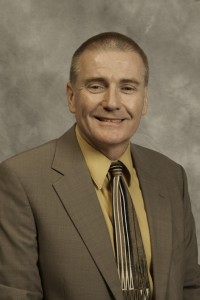September 24, 2012
Sitting on the Shoulders of Giants
By: Sharon Muza, BS, LCCE, FACCE, CD/BDT(DONA), CLE | 0 Comments
Today we have a blog post from keynote speaker, Steven B. Frye, Ph.D.. As a reminder, today is the last day to sign up for the early bird registration for the Lamaze Conference 2012. We can't wait to see you there!
 As a full-time university professor, I know all-too-well the struggle to communicate with adult learners on a daily basis. The act of connecting is so important in helping people create meaning out of the concepts we are attempting to pass along. As we all remember from school, some seem to have a natural ability to connect with the masses in a near magical way. Most of us, however, sit in the middle - our practice a mixture of great, okay, and not-so great sessions. Here is an important concept to remember: we are not born teachers; we become teachers. In educational psychology we talk about four types of knowledge required for good teaching: content knowledge, knowledge about how to communicate that content knowledge, knowledge about teaching and learning, and knowledge about learners (Eggen and Kauchak, 2010). It takes knowledge in all of these areas to effectively connect with learners in a way that brings about significant and life-altering learning.
As a full-time university professor, I know all-too-well the struggle to communicate with adult learners on a daily basis. The act of connecting is so important in helping people create meaning out of the concepts we are attempting to pass along. As we all remember from school, some seem to have a natural ability to connect with the masses in a near magical way. Most of us, however, sit in the middle - our practice a mixture of great, okay, and not-so great sessions. Here is an important concept to remember: we are not born teachers; we become teachers. In educational psychology we talk about four types of knowledge required for good teaching: content knowledge, knowledge about how to communicate that content knowledge, knowledge about teaching and learning, and knowledge about learners (Eggen and Kauchak, 2010). It takes knowledge in all of these areas to effectively connect with learners in a way that brings about significant and life-altering learning.
This discussion reminds me of an oft-cited quote from Sir Isaac Newton where he said, 'If I have seen further it is by standing on the shoulders of Giants.' There are 'giants' that do research applying to all of these learning domains to help us see further in our quest to connect with learners. Often educators do not take advantage of the work of these giants. After all, teachers are about 'practice'. Theory and research is for those who 'talk about practice'.
Here is an interesting fact about Newton's famous quote: the idea probably didn't originate from him! In 1130 Bernard of Charles said, 'we are like dwarfs sitting on the shoulders of giants, and so able to see more and see farther than the ancients' (Morrison, 2005, p. 73). So the great Newton also sat on the shoulders of other giants! In the Saturday keynote address we will explore the concept of adult learning and conceptual change, applying research and theory to practice. It is my hope that it will cause us to think more about the giants around us who seek to help us see further than we could on our own.
Sources:
Eggen, P.D., & Kauchak, D.P. (2010). Educational psychology: Windows on classrooms (8th ed.). New York: Pearson.
Morrison, P. J. (2005). We are like dwarfs standing [or sitting] on the shoulders of giants. Ulster Med Journal, 74(2), 73-74.
Tags
Maternity Care Maternal Infant Care Women of Size